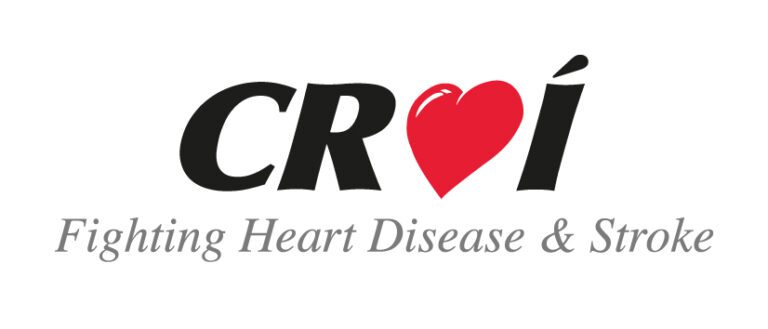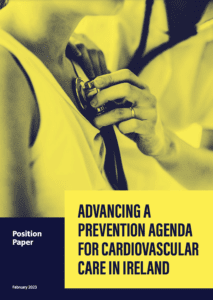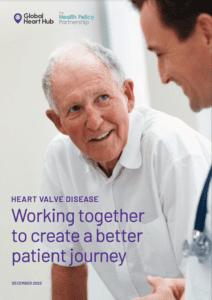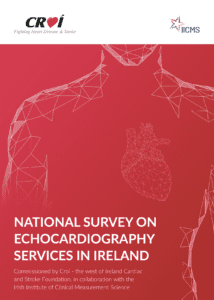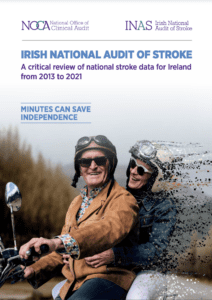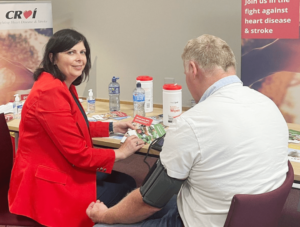Goals
To UNDERSTAND
Heart & Stroke Voice seeks to understand the Irish healthcare landscape and capture how it is perceived by and experienced by those living with or affected by heart and stroke challenges, particularly in terms of equity and access to healthcare. We aim to do this by participating in, contributing to or leading patient-led research; by reviewing and evaluating national and international reports, position papers and healthcare policy publications and engaging with organisations and agencies involved in cardiovascular healthcare in Ireland and Europe.
Prevention
Heart Valve Disease
Stroke
Stroke is a major cause of mortality and morbidity in our population and a major cost to our health service when outcomes are poor.
Irish National Audit of Stroke National Report 2013-2021
The Irish National Audit of Stroke measures the care for all patients with a stroke in acute hospitals. This audit is showing the key trends in acute stroke care from 2013 to 2021
In the European Union (EU) stroke is the second most common cause of death and a leading cause of adult disability. As populations continue to grow and live to an older age, stroke and the long-term sequelae, along with the corresponding costs, are expected to increase dramatically. This is the third national report from the INAS and it is an overview of the quality of the data and key trends in stroke care from 2013 to 2021. It presents data on 34,630 cases and includes patients aged 17 years and over who were treated in public hospitals that provide acute stroke care and admitted more than 25 patients with a stroke annually from 2013 to 2021. Read more here
Hypertension
Hypertension also known as high blood pressure is a leading modifiable risk factor for premature cardiovascular disease. It is estimated to affect almost one million people in Ireland. It means your blood pressure is consistently too high and means that your heart has to work harder to pump blood around your body. High blood pressure is serious. If you ignore it, it can lead to heart and circulatory diseases like heart attack or stroke. It can also cause heart failure, kidney failure, problems with your sight and vascular dementia, and significantly, it is the biggest risk factor for stroke. There isn’t always an explanation for the cause of high blood pressure, but most people develop high blood pressure because of their diet, lifestyle or medical condition. Sometimes high blood pressure runs in families and can also worsen with age.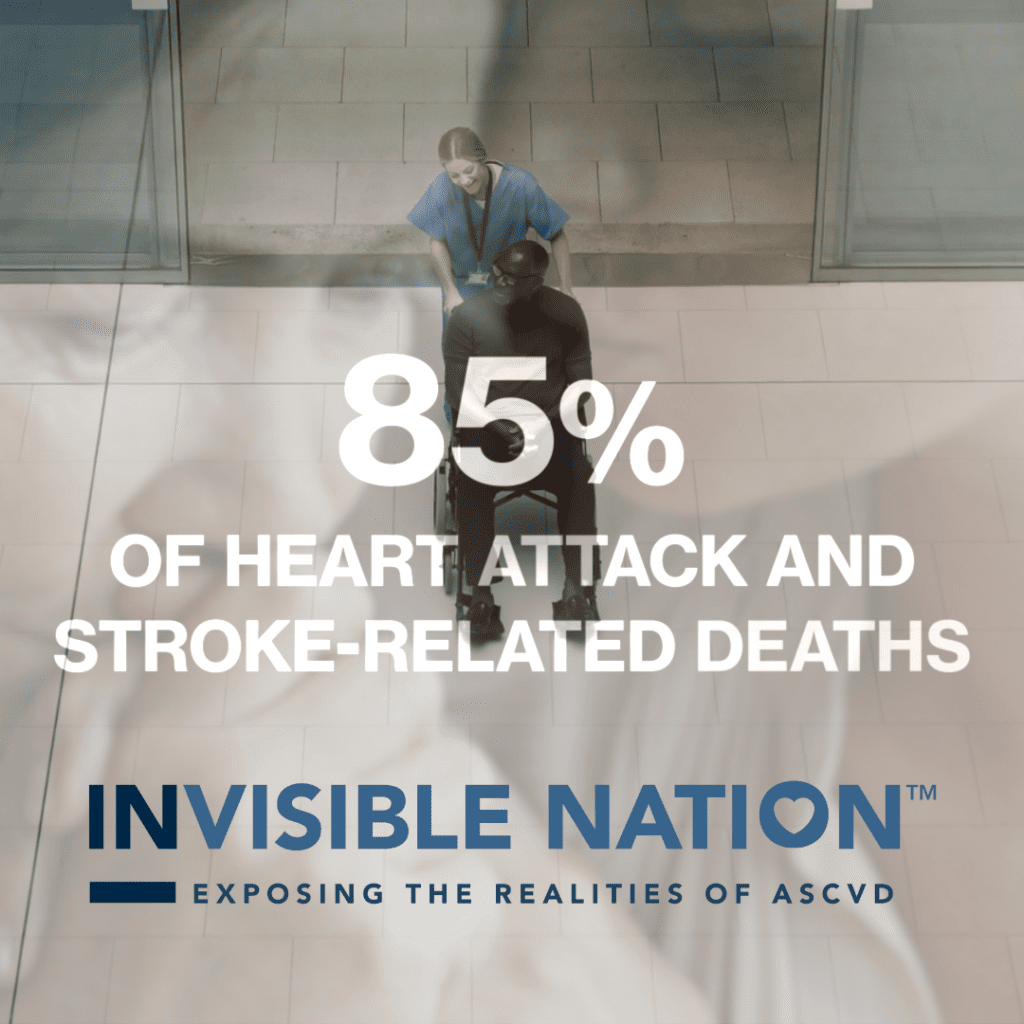
ASCVD
Heart & Stroke Voice Ireland is an affiliate of the Global Heart Hub, which is a global alliance of heart patient organizations. The Global Heart Hub recently launched Invisible Nation, a program aimed to expose and respond to the realities of atherosclerotic cardiovascular disease (ASCVD). Leveraging a global network of heart patient organisations and heart patient advocates, and created in partnership with Novartis, Invisible Nation aims to engage with all the stakeholders in cardiovascular diseases.
Invisible Nation will advocate for policy-shaping efforts to rewrite how governments, health systems and all stakeholders can work together to change the trajectory of ASCVD and begin a generational decline in CV death. This program will help reduce the 15 million ASCVD deaths per year and the enormous financial costs of continued
Invisible Nation aims to bring together the cardiovascular community to expose the realities of atherosclerotic cardiovascular disease (ASCVD) – a silent, chronic disease – and the personal and social impact it has. By creating awareness around this major driver of heart attacks, strokes, and death, Invisible Nation intends to ignite conversation, inspire action, and activate systemic change to make the burden of unmanaged ASCVD un-ignorable and expose the barriers for people living with it to reach better health outcomes.
Croí Mayo Third Age Project
Croí Third Age Mayo offers a new way of thinking about ageing and is specifically designed to promote and support the cardiovascular health and well-being of the over 55 population in the county. Heart disease, stroke and diabetes are more common as we get older. If detected early, many heart conditions such as high blood pressure, heart valve disease, heart failure and atrial fibrillation (irregular heart beat) can be treated so that people can have a longer and better quality of life. One of the leading drivers of heart disease and stroke is hypertension (high blood pressure over a particular level, diagnosed by a doctor). It is a serious but manageable condition that affects almost two-thirds of Irish adults over the age of 50. Despite the high levels of hypertension in Ireland and worldwide, it is a condition that is easily detected, and which can be effectively treated to minimise the risk of an event like a stroke. Read more here about the findings of a general public survey in Mayo supported by Croí, the West of Ireland Cardiac & Stroke Foundation.Supported by
